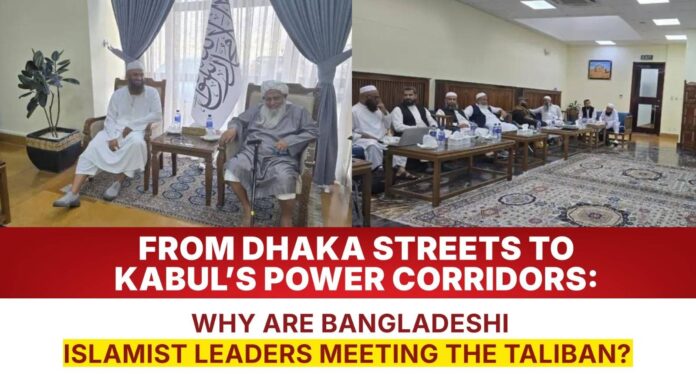
In an unprecedented move, a seven-member delegation led by Bangladesh Khelafat Majlis chief, Mamunul Haque, has arrived in Afghanistan. On Wednesday morning, they landed in Kabul—at the official invitation of the Taliban government.
Though the party insists this is not a political trip, their own press release confirms high-level meetings are scheduled—with the Taliban’s Chief Justice, ministers, and top officials.
The delegation claims their mission is to observe the reality of Afghanistan—particularly on the highly sensitive issues of human rights and women’s rights, matters that have sparked global outrage.
But the timing is striking. While protests called by Khelafat Majlis shake the streets of Dhaka, its leader is in Kabul, seeking dialogue with a regime the West continues to isolate.
Political observers call it historic—and shocking. Never before has a Bangladeshi political leader visited Afghanistan under Taliban rule.
The press statement outlines their agenda: strengthening ties between religious scholars of the two nations, exploring trade and education cooperation, and even discussing diplomatic links—despite Bangladesh not recognizing the Taliban government and having no embassy in Kabul.
Yet, questions loom large. Why now? Why Mamunul Haque? And what signal does this send when millions of Bangladeshis protest at home, while their leaders shake hands with one of the world’s most controversial regimes?
As one political analyst warns: “This is more than just a visit. This is a message.”




